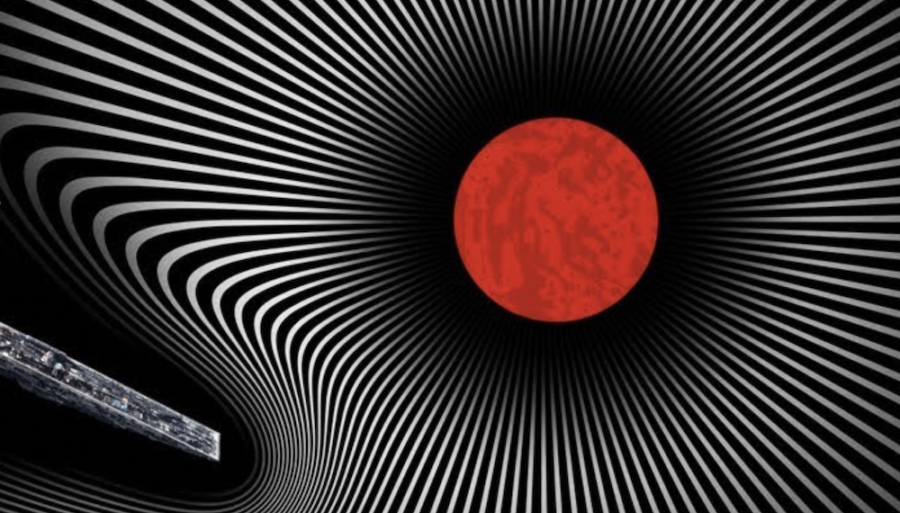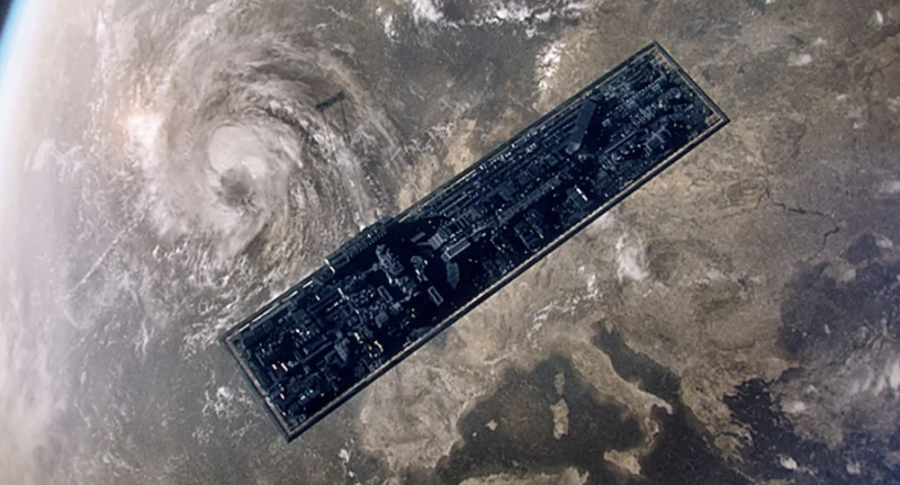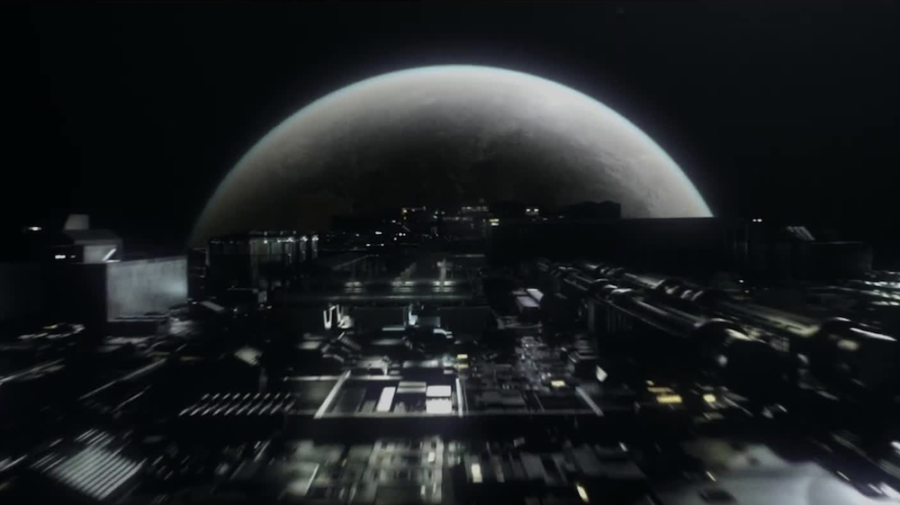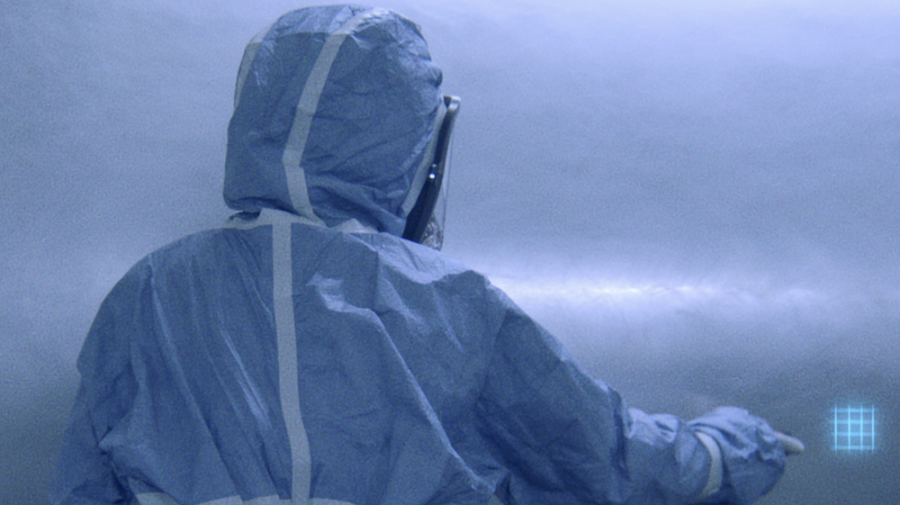The Max Sci-Fi Thriller Strands You In Space And Gets Even Scarier

If you’re searching for a sci-fi film blending the concrete dread of space with the existential crisis represented by climate change—consider Aniara. Pella Kågerman and Hugo Lilja directed the gripping, at times terrifying 2018 Swedish-Danish film, which is itself an adaptation of the 1956 Swedish epic poem by Harry Martinson.
Aniara In A Dystopian Future

In the throes of a dystopian future devastated by climate change, the film charts the harrowing voyage undertaken by a spaceship that, initially heading for Mars, finds itself irreversibly off course.
When the film and epic poem begin, Earth suffocates beneath the weight of immense pollution and rising sea levels, all of which render it more or less uninhabitable. The solution—mass migration to Mars.
Enter the Aniara, a luxurious spaceship that, not unlike what Elon Musk perhaps envisions for SpaceX, delivers passengers to their new Martian homes in a mere three weeks.
Mimarobes

Aboard the vessel, the film’s protagonist, played by Emelie Garbers, labors as a “Mimarobe.” Mimarobes—a unique and memorable sci-fi conceit of the narrative—operate the Mima, an artificial intelligence offering passengers immersive virtual realities recreating Earth’s once lush environment.
The AI functions as a sort of futuristic, high-tech in-flight entertainment; more poignantly, though, it’s also a bittersweet reminder of what humanity has lost.
A Disaster Strikes

Of course, no sci-fi horror film is complete without a disaster striking; soon enough, it does.
Within a week of its departure, Aniara is forced into veering off course to avoid space debris, which it nonetheless partially collides with. The subsequent damage to the ship incapacitates its nuclear reactor, leading to the ejection of all its fuel.
Adrift, the ship lacks any means of navigation or propulsion. Though the crew assures their passengers the ship will resume its course within two years, this reassurance soon reveals itself as a facade. The passengers are thus plunged into despair.
Earth’s Destruction

Soon, the VR fantasies of the Mimarobe become a crucial source of escape for the passengers, who depend on the VR to escape their bleak reality.
However, the AI self-destructs—overwhelmed by the collective traumas and terrifying memories of Earth’s destruction.
The increasingly unhinged passengers of the Aniara blame the Mimarobe for the malfunction and imprison her.
Years pass, and the situation aboard the vessel worsens further: cults emerge, mass suicides occur, and the entire social order disintegrates. This treatment of social and psychological dysfunction amidst a sci-fi backdrop is what makes the film so fascinating and singular.
Horrors Mount

As horrors mount and insanity reigns, the Mimarobe and her lover, Isagel, a former pilot, seek solace in a fertility cult. But their respite is short-lived.
After the dumpster fire that was most movies in 2023, take heart: Aniara offers a compelling cinematic experience. It’s backed up by the largely positive reviews it has received from critics. The film boasts a 71% rating on Rotten Tomatoes, accrued from 51 reviews.
Generally, experts considered the movie visually engaging, though perhaps a little overbearing and monotonous philosophically. Two separate reviews in Britain’s The Guardian awarded the film four stars out of five, praising the movie as “remarkable” and “captivating.”
Asteroid Prize

The film earned the coveted “Asteroid” Prize for Best International Film at the 2019 Trieste Science+Fiction Festival before securing four accolades at the 2020 Swedish Guldbagge Awards. These included Best Actress for Emelie Garbers and Best Supporting Actress for Bianca Cruzeiro (who played Isagel).
Garbers’ and Cruzeiro’s performances won widespread acclaim, as did Aniara’s directing team, Pella Kågerman and Hugo Lilja, whose bleak yet captivating depiction of a future gone awry makes the film a must-watch.
Surpasses The Bounds Of Sci-Fi

Harry Martinson, the prominent Swedish author and poet who penned the epic poem on which the film is based, won the Nobel Prize in Literature in 1974 (sharing the honor with fellow Swedish writer Eyvind Johnson).
Enduring a childhood marked by immense hardship, including the loss of his parents and a period of homelessness, Martinson funneled these experiences into his writing.
Subsequently, his celebrated epic poem contains deep, dark existential themes, alongside a strong connection to nature and celebration of our (threatened) natural world.
The poem’s meditation on the human condition, technology’s societal function, and the unfeeling vastness of the universe influenced the film immensely.
Ultimately, Aniara surpasses the usual bounds of sci-fi, delving into the depths of human despair, hope, and resilience. Don’t miss it.












